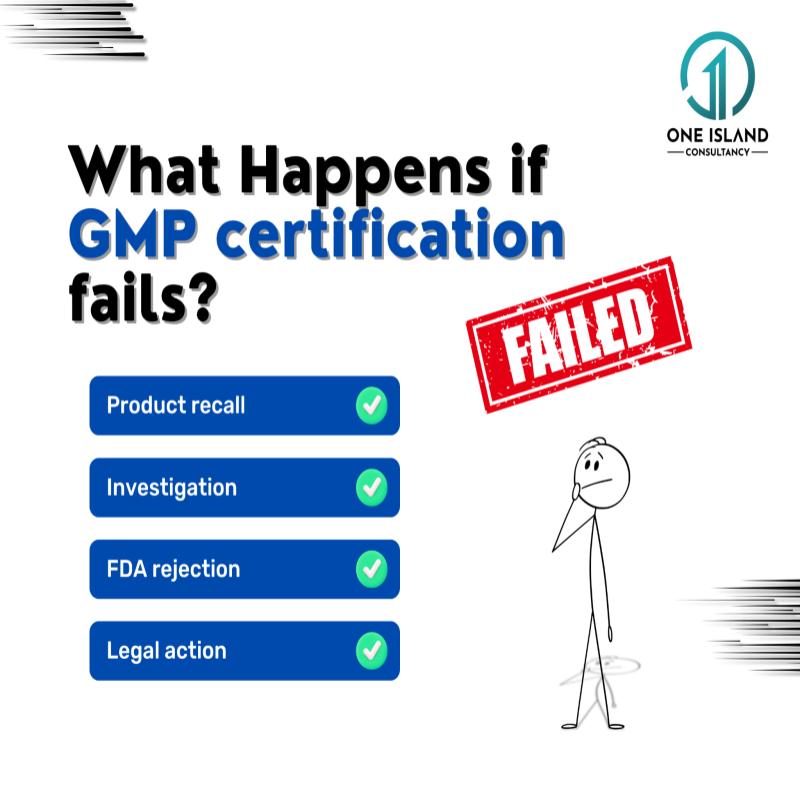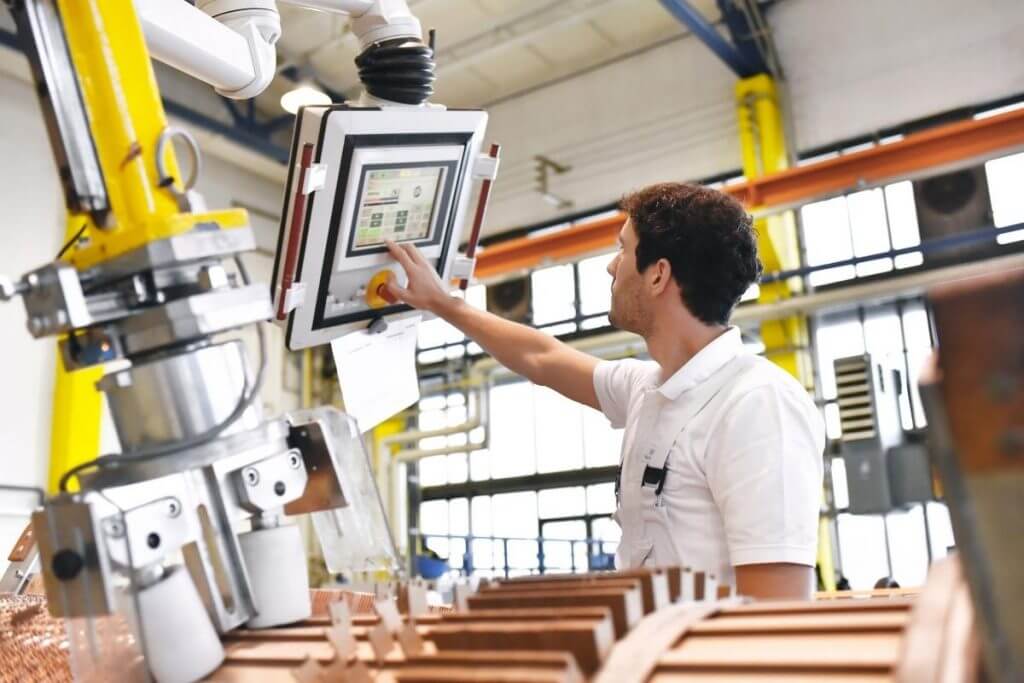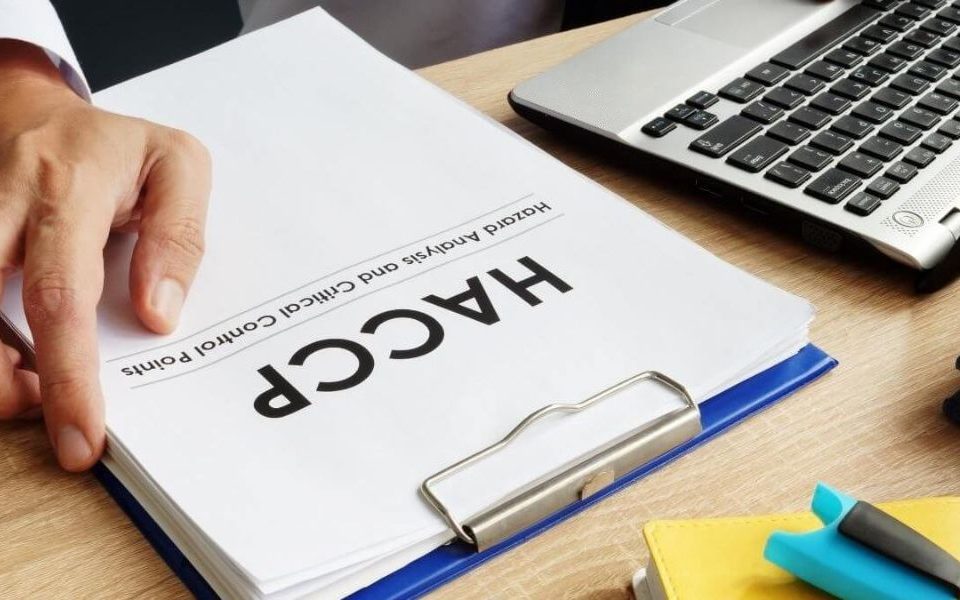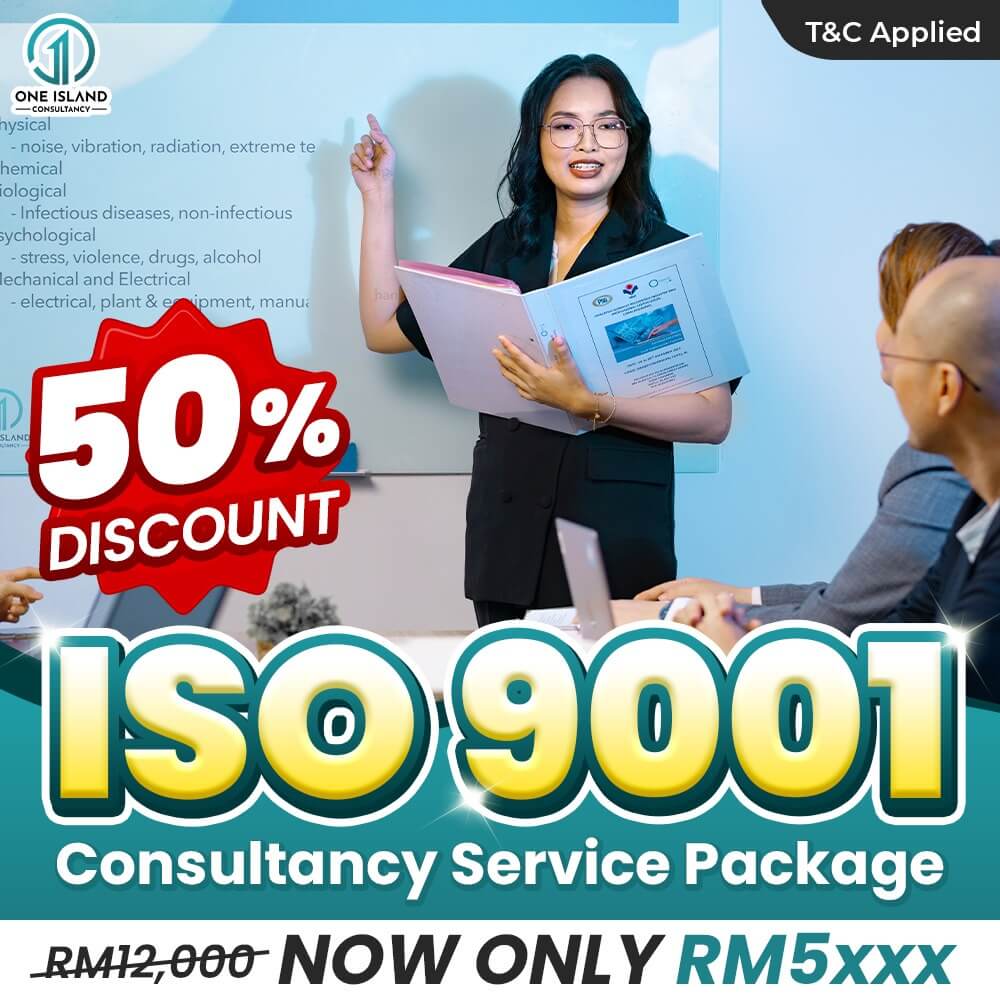
Key Changes in Malaysia’s EQA Amendment 2024
September 27, 2024
What is ESG Framework: How to Get ESG Certification in Malaysia
July 18, 2025The Good Manufacturing Practice (GMP) certification for food, pharmaceuticals and cosmetics industries showcases their qualification in maintaining high product quality and safety standards.
GMP helps ensure products are made clean, safe, and consistent to protect consumers and meet legal requirements.
This article covers what is GMP certification in Malaysia, why manufacturers prefer GMP-certified vendors, its benefits, the steps to get certified, and how it differs from ISO 9001.
Key Takeaways
- GMP (Good Manufacturing Practice) certification ensures that products are consistently produced and controlled according to quality and safety standards.
- GMP focuses on product safety, hygiene, and contamination control, while ISO 9001 emphasises quality management systems and efficiency.
- Verify through certification bodies (NPRA, SGS, Bureau Veritas), government databases, supplier documentation, and product packaging.
- Ensures product safety, regulatory compliance, better quality control, and consumer trust while reducing legal risks.
- Businesses risk product recalls, regulatory fines, lost market access and damaged reputations but can reapply after corrective actions.
- Improves product quality, business credibility, operational efficiency, market expansion, and consumer confidence.
- Follow a structured process that includes facility compliance, GMP documentation, employee training, internal audits, and official certification.
What Is GMP Certification?

Good Manufacturing Practice (GMP) is a system designed to ensure consistency and high-quality standards in Malaysian product production. GMP Certification Malaysia plays a crucial role in minimising risks in pharmaceutical production that cannot be eliminated by testing the final product.
GMP is applicable across various sectors in the food and pharmaceutical industries, including:
| Industry | Why GMP Certification is Essential |
| Food Manufacturers | Ensures food is made in clean and safe conditions, preventing contamination and foodborne illnesses. |
| Pharmaceutical Manufacturers | Legally required to ensure medicines are produced safely and consistently to protect patient health. |
| Cosmetic Manufacturers | Ensures products are made hygienically, reducing risks of skin issues and building customer trust. |
| Supplement Manufacturers | Ensure supplements have the right ingredients and are contamination-free, safeguarding consumer health. |
| Exporters | Meet international standards, making exporting products to global markets easier without delays or rejections. |
Having GMP certification ensures safety, quality, and regulatory compliance, protecting consumers and enhancing business growth and reputation.
Find out more about Good Manufacturing Practices Malaysia for the food and pharmaceutical industry.
Key Aspects of GMP Certification Malaysia
GMP covers all parts of the production process, including:
- Raw Materials: Using high-quality ingredients
- Premises: Keeping facilities clean and organised
- Equipment: Using the right tools and maintaining them well
- Staff Training and Hygiene: Ensuring employees follow safety and hygiene standards
Documentation at every step ensures consistency and accountability. By adhering to GMP guidelines, manufacturers create safe, high-quality, and sanitary environments for their operations.
How Is GMP Different from ISO 9001?
While both GMP and ISO 9001 certification Malaysia focus on quality management systems, they serve different purposes and industries.
| GMP | ISO 9001 | |
| Industry Focus | Specifically designed for industries where product safety and hygiene are critical, such as pharmaceuticals, food, cosmetics, and healthcare | A general quality management applicable for all industries, including manufacturing, services and logistics |
| Regulatory Requirements | Legally required in many regions, including Asia, the US, Canada and Europe | Voluntary and focuses on enhancing customer satisfaction and continuous improvement |
| Focus Areas | Emphasises product safety, hygiene and consistency in GMP manufacturing processes with less contamination and defects | Customer satisfaction, quality control processes and efficiency in operations |
| Documentation | Requires detailed documentation at every stage of production, including raw materials, facilities, equipment and staff hygiene | Focuses on documenting processes to ensure consistent quality management but less detailed on hygiene and safety requirements |
4 Reasons Manufacturers Choose GMP-Certified Vendors?

Partnering with GMP-certified vendors offers manufacturers significant advantages:
- Legal Compliance: Required in Malaysia and internationally to avoid legal issues
- Quality Assurance: Ensures suppliers produce safe and high-quality products
- Product Safety: Reduces risks of contamination or defects
- Cost Savings: Avoids delays, recalls, and costly mistakes
7 Benefits of GMP Certification
GMP certification offers numerous advantages for stakeholders in the food and pharmaceutical industries:
- Prevent Product Recalls and Ensure Safety: Minimise risks of product recalls and protect customers from potential harm.
- Maintain Sanitary Conditions: Ensure sanitary procedures are handled properly, including proper maintenance and cleanliness practices.
- Enhances Staff Efficiency: Encourages effective production practices by ensuring staff are well-trained and competent in their roles and fosters a more efficient working environment.
- Cost Reduction: Detects and resolves production issues promptly to reduce internal costs.
- Legal Compliance: Ensures adherence to relevant laws and regulations
- Demonstrates Managerial Competence: Showcases a company’s commitment to quality and safety.
- Expand Market Opportunities: Gain market access for more business opportunities.
How to Check GMP Certification in Malaysia
Ensuring that a manufacturer or supplier is GMP-certified is crucial for businesses prioritizing product safety, regulatory compliance, and consumer trust. Here’s a detailed table on how to verify GMP certification.
| Verification Method | Details |
| Verify Through Official Certification Bodies | 1) Check with NPRA Malaysia for GMP pharmaceutical & health supplement certification. 2) Verify third-party certifications (SGS, Bureau Veritas, NSF) for F&B, cosmetics & supplements. 3)Confirm regulatory approval with the Ministry of Health Malaysia for local food manufacturers. |
| Check Government & Regulatory Databases | 1) NPRA Online Database: Search for registered manufacturers & product compliance. 2) KKM Website: Verify GMP approval for food & health-related businesses. 3) JAKIM Halal Certification: Cross-check Halal & GMP compliance in the Halal Malaysia Directory. |
| Request Official Documentation from the Supplier | Key Documents to Request: 1) GMP Certificate – Official approval from a certification body. 2) Audit Reports – Proof of periodic inspections. 3)Manufacturing Records (BMRs) – Ensures process compliance. 4)Raw Material Traceability Reports – Validates supplier compliance. |
| Inspect Product Packaging for GMP Malaysia Logo & Batch Numbers | 1) Look for GMP logo Malaysia on product packaging. 2) Check for batch numbers & production details to verify traceability. 3) Confirm that manufacturing facility information matches the certification records. |
| Conduct On-Site Audits or Request a Third-Party Inspection | 1) Physical Inspection: Verify cleanliness, hygiene, and production safety. 2) Documentation Review: Check SOPs, employee training records, and batch logs. 3) Production Process Evaluation: Ensures adherence to GMP standard. |
What Happens if GMP Certification Fails

If a product fails to meet GMP requirements, actions depend on the severity of the violation. Potential outcomes include:
- Product Recall: Products may need to be withdrawn from the market.
- Investigation: Identify issues and take corrective actions for improvements
- FDA Rejection: Production may be halted for pharmaceutical or supplement products.
- Legal Action: Severe violations may lead to fines or product seizures.
How to Get GMP Certification in Malaysia

Getting GMP certification requires strict compliance with manufacturing best practices, documentation standards, and regulatory requirements.
One Island streamlines the GMP certification process by offering expert guidance at every stage. Below is a detailed step-by-step guide on obtaining GMP certification in Malaysia with the required key documentation. a few months, including preparation, documentation, and audit phases.
| Step | What Needs to Be Done? | Key Documentation |
| Step 1: Conduct a Gap Analysis & Facility Inspection | 1) Assess current compliance levels against GMP standards. 2) Identify hygiene, process, or documentation gaps. 3) Conduct an internal audit to pinpoint areas for improvement. | 1) Self-Assessment Report 2) Audit Checklist 3) Facility Layout & Equipment Records |
| Step 2: Ensure Facility & Equipment Compliance | 1) Upgrade manufacturing facility, ventilation systems, and sanitation protocols. 2) Implement cleanroom standards and hygiene control measures. 3) Ensure all equipment is calibrated and maintained. | 1) Equipment Calibration & Maintenance Logs 2) Cleaning & Sanitation Procedures 3) Pest Control & Hygiene Records |
| Step 3: Prepare GMP Documentation & SOPs | 1) Develop GMP-compliant documentation for manufacturing, safety, and quality control. 2) Implement batch records, traceability logs, and supplier qualification reports. 3) Ensure proper record-keeping systems. | 1) GMP Quality Manual 2) Batch Manufacturing Records (BMRs) 3) Supplier Qualification Reports 4) Product Recall & Complaint Handling Procedures |
| Step 4: Employee Training & Qualification | 1) Train staff on GMP principles, hygiene standards, and contamination control. 2) Conduct workplace safety and SOP compliance training. 3) Maintain training logs for audit verification. | 1) Employee Training Records & Certificates 2) Workplace Safety & Hygiene Guidelines 3) SOP Compliance Reports |
| Step 5: Perform Internal Audit & Mock Inspections | 1) Conduct pre-audits to check for non-compliance issues. 2) Simulate a real GMP inspection with mock audits. 3) Review all documentation and facility standards for readiness. | 1) Internal Audit Reports 2) Corrective Action & Preventive Action (CAPA) Plans 3) Risk Assessment Reports |
| Step 6: Submit Application for GMP Certification | 1) Select an accredited certification body (e.g., NPRA, SGS, Bureau Veritas). 2) Submit all GMP documentation and facility reports. 3) Schedule an official GMP audit. | 1) GMP Certification Application Form 2) Facility & Process Compliance Reports 3) Product Specifications & Testing Reports |
| Step 7: Undergo Official GMP Audit & Certification Assessment | 1) Certification bodies will inspect facilities, review documents, and evaluate compliance. 2) Address any non-compliance issues raised during the audit. 3) Receive final GMP approval upon meeting all requirements. | 1) Audit Findings Report (Issued by the certification body) 2) Corrective Action Reports (If necessary) 3) Final Compliance Verification Reports |
| Step 8: Maintain Ongoing Compliance & Renew Certification | 1) Conduct regular self-audits and GMP inspections. 2) Keep SOPs, batch records, and equipment logs updated. 3) Apply for GMP certification renewal before the expiration date. | 1) Annual GMP Compliance Reports 2) Updated Training & Hygiene Records 3) Audit Reports from Periodic Inspections |
Achieve GMP Certification with Confidence – One Island’s Expert Guidance

One Island is a trusted consultant for GMP certification in Malaysia, helping businesses across various industries, including pharmaceuticals, food & beverages, cosmetics, and health supplements, navigate the complexities of GMP compliance.
With extensive experience in regulatory requirements and industry best practices, One Island provides end-to-end support with GMP certification and training programs to ensure a smooth certification process.
| Key Services | Details |
| Comprehensive GMP Consultation | 1) Provides in-depth guidance on GMP requirements based on industry-specific needs. 2) Helps businesses understand Malaysia’s GMP regulations, including NPRA and KKM requirements. |
| Pre-Assessment & Compliance Audits | 1) Conducts gap analysis to identify non-compliance areas. 2) Evaluates manufacturing processes, facility hygiene, documentation, and staff training. 3) Recommends improvements before the official audit. |
| Facility & Process Compliance Support | 1) Assists in upgrading facility layout, equipment, and sanitation protocols to meet GMP standards. 2) Implements hygiene control measures, quality control (QC) systems, and production SOPs. 3) Ensures product traceability and batch consistency. |
| GMP Documentation Preparation | 1) Develops and organises GMP-compliant documents, including: i) Quality Manual – Defines overall GMP policies. ii) Standard Operating Procedures (SOPs) – Covers production, sanitation, and quality assurance. iii) Batch Manufacturing Records (BMRs) – Ensures consistent production standards. iv) Supplier Qualification Records – Verifies raw material sources. v) Employee Training Records – Tracks compliance training. 2) Ensures all documents are correctly formatted and ready for submission. |
| Employee Training & Awareness Programs | Provides customized training sessions to educate employees on: 1) GMP compliance & hygiene best practices. 2) Proper handling of raw materials and final products. 3) Record-keeping and SOP adherence. 4) Ensures staff are fully prepared for the GMP audit. |
| Internal Audit & Mock Inspections | 1) Conducts internal pre-audits to identify potential non-compliance issues. 2) Performs mock inspections to simulate real audit scenarios. 3) Guides businesses on how to respond to auditors’ questions and provide proper documentation. |
| GMP Certification Application Assistance | 1) Helps businesses choose the right certification body. 2) Oversees the submission of required GMP documents. 3) Prepares businesses for the official GMP audit process. 4) Supports businesses in resolving audit findings or certification delays. |
| Ongoing Compliance & Post-Certification Support | 1) Assists in maintaining continuous GMP compliance through regular audits and updates. 2) Provides assistance for certification renewal and annual reviews. 3) Helps implement corrective actions if GMP standards change. |
Why Choose Us?
- IExpert Guidance: Deep knowledge of Malaysian GMP regulations and certification processes.
- Customised Solutions: Tailored GMP strategies for different industries (F&B, pharma, cosmetics, supplements).
- Comprehensive Support: From initial consultation to certification and post-audit compliance.
- Streamline Certification Processes: Minimised disruption in streamlined audits Benefit for multiple certifications (ISO 9001, HACCP certification Malaysia, GMP, and ISO 22000 Malaysia)
- Proven Success: Track record of helping businesses pass GMP audits with high success rates.
GMP certification costs in Malaysia vary depending on the size and scope of your business, the areas needing certification, and consultancy fees.
Malaysian Food Manufacturer Achieve GMP Certification
ABC Food Corporation specialising in ready-to-eat meals and frozen foods aimed to enhance food safety and expand into international markets. To do this, the company needed to achieve GMP certification, but it faced several challenges. These included a lack of standardized procedures across production lines, insufficient staff training, and poor documentation practices, all of which made compliance with GMP standards difficult.
One Island’s Solution
- Process Standardisation – One Island worked with the client to streamline and document production procedures, ensuring uniformity in hygiene and safety practices from raw material handling to packaging.
- GMP System Documentation Setup – Developed and implemented a complete set of GMP documentation, including SOPs, cleaning schedules, quality checks, and corrective action logs to meet traceability and compliance requirements.
- Staff Training on GMP Standards – Delivered customised training programmes focused on hygiene control, safe food handling, and GMP awareness, ensuring that all employees were audit-ready.
- Pre-Certification Audits & Internal Monitoring – Conducted mock audits and provided ongoing compliance checks to ensure the company met all GMP criteria before submitting the application.
- End-to-End Certification Support – Assisted with application preparation, liaising with certification bodies, and providing real-time guidance during the audit process.
Results & Business Impact
- Successfully achieved GMP certification, validating their food safety system and operational standards.
- Improved process consistency, reducing production errors and safety risks.
- Expanded into new markets, leveraging the certification to meet international trade requirements.
- Boosted consumer trust and brand reputation, leading to higher product demand.
Conclusion
GMP certification is crucial for maintaining product quality, safety, and legal compliance in Malaysia. By understanding the benefits, the process, and the importance of GMP training, your business can achieve high standards and build lasting customer trust.
Ready to get GMP certified? Contact One Island Consultancy today for expert guidance and training to ensure your business meets GMP standards and thrives in both local and international markets!





